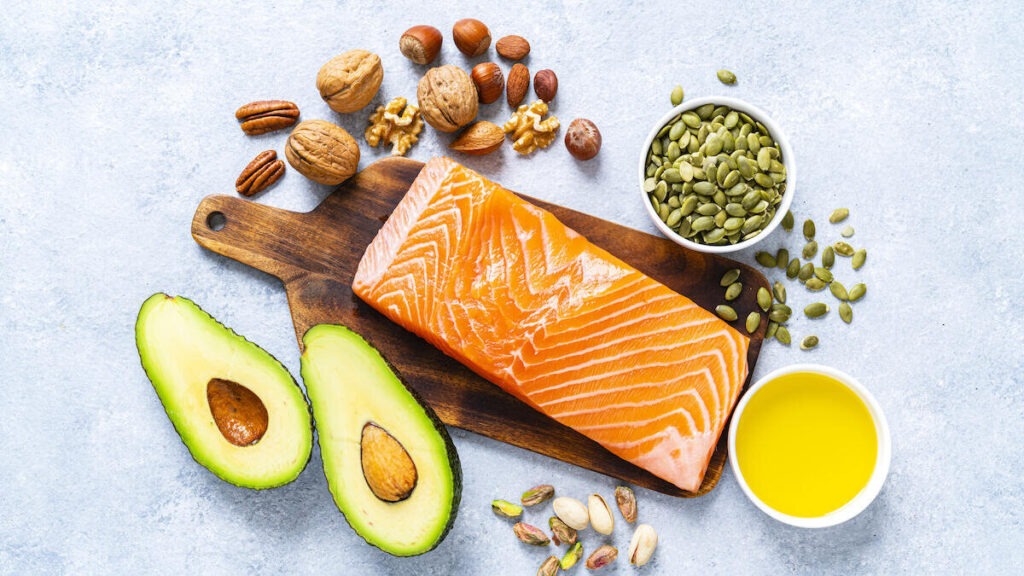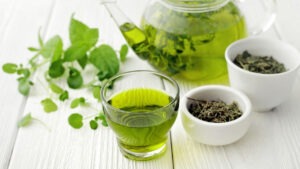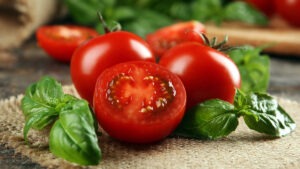- August 12, 2024
- Posted by: Henry Wixdek
- Category: Health

Inflammation is a process within your body triggered by injury, trauma or bacterial and viral infections. However, when it deteriorates the quality of human life and becomes a chronic condition, it ushers in several diseases, including heart, arthritis, and diabetes. The good news, though, is that diet has executive control over this inflammation and hence can be utilised in this way effectively. They are also crucial because proper meals should be taken to help treat the inflammation and enhance the health of the body. Here & for your convenience, are twenty wonderful foods you should eat because they contain anti-inflammatory properties that may positively affect your health.
What is Inflammation?
Inflammation is a straightforward definition that means the manner in which the body is guarded from harm. For example, acute inflammation is a short-term process due to injury or infection, while chronic inflammation may be long-lasting and always bad for health. Thus, it is essential to categorise them to be able to choose the right approach and type of diet strategy.
Top 20 Anti-Inflammatory Foods
Berries
Various types of berries, such as strawberries, blueberries, and raspberries, contain flavonoids and polyphenols, which are very important in the fight against inflammation. Past research indicates that the presence of multiple antioxidants in berries causes a decline in the inflammation levels in the male body, thus enhancing his health. A study done at the University of Sydney, due to this ascendancy of the chronic inflammatory disease in Australia, established that taking berries could reduce inflammation in the body.
Fatty Fish
Fresh fatty fish like salmon, mackerel, and sardines contain omega-3 fatty acids that fight inflammation. As the omega-3s help reduce inflammation, they are appropriate for large doses. The Australian Dietary Guidelines suggest the preference for fish twice a week. These contain Omega-3 fatty acids. Some studies by CSIRO about how human beings can prepare and treat themselves reveal that the human body can lower inflammation and incidences of heart diseases by taking fatty fish.
Turmeric
Nutraceuticals such as curcumin, present in turmeric, have anti-inflammatory effects in patients. Turmeric has an added value in the foods we consume since it curtails situations of chronic inflammation. Curry or sauces and infusion into drinks like smoothies make it easier to consume turmeric. Curcumin should be taken with black pepper, as the University of Melbourne advised, for enhanced absorption.
Green Tea
Catechins, antioxidants present in green tea, help to fight inflammation. As established, regular daily intake of green tea increases the body’s capacity to combat inflammation. An Australian University of Newcastle study indicated that daily green tea consumption can reduce inflammation, especially in inflammatory disease-prone areas.
Leafy Greens
Spinach, kale, and Swiss chard are full of vitamins and inflammation-reducing antioxidants that give us fibre for digestion and have anti-inflammatory properties for our body. Assuming that the Australian National University nutritionists have done their homework well, in order not to aggravate inflammation, arthritis, and cardiovascular diseases, one should eat fresh green leaves of all types.
Nuts
Tree nuts such as almonds, walnuts, cashews, peanuts and others contain, among other things, healthy fats, antioxidants and fibre. It comes in different varieties as they have a role in ending inflammation while having specific health benefits. Being a part of the Heart Foundation of Australia, it has been identified that eating a handful of nuts daily can reduce inflammation and benefit the heart, thus making including nuts in the foods one takes easy and helpful.
Olive Oil
Component oleocanthal in extra virgin olive oil also has the same reduced inflammation as ibuprofen. From this study, it can be concluded that inflammation can be lower through the consumption of olive oil. The Australian Dietary Guidelines say that extra virgin olive oil should be used as the primary oil for cooking due to its anti-inflammatory effect. Researchers working for the University of Western Australia discovered that it decreases the levels of inflammation, so it has what is known as an anti-inflammatory effect.
Tomatoes
Lycopene in tomatoes reduces inflammation. Preparing tomatoes is advisable since cooking makes the antioxidants, particularly lycopene, more potent and offers additional anti-inflammatory properties. While observing the effect of the cooked tomatoes, the University of Queensland realised that the inflammation marker was halved, making the tomatoes an anti-inflammatory food.
Avocados
Avocados contain monounsaturated lipids that are essential in reducing inflammation. Vitamins E and C also minimise inflammation. According to dietitians from Sydney University, avocados should be included in the diet to treat inflammation and improve health status.
Ginger
Ginger contains anti-inflammatory gingerols. If you experience inflammation, take raw ginger or ginger tea to reduce the inflammation. Another Melbourne University study supports the use of ginger to reduce inflammation in common Australian illnesses, including arthritis in the elderly.
Garlic
Sulphur molecules in garlic reduce inflammation. Garlic adds flavour and has several nutritional benefits. Thus, Australian research demonstrates that garlic reduces inflammation and cardiovascular disease.
Chia Seeds
Chia seeds are high in fibre, antioxidants, and omega-3s. These tiny seeds reduce inflammation and promote heart health. Chia seeds are anti-inflammatory and nutritious, according to the Australian National University.
Sweet Potatoes
Sweet potatoes contain a lot of beta-carotene and fibre, which reduce inflammation and improve digestion. Grains, for instance, are adaptable and healthful when eaten throughout the day. Heart Foundation of Australia experts say sweet potatoes are nutritious and contain significant anti-inflammatory ingredients.
Beets
Beet betalains are antioxidants and anti-inflammatory. Beets alleviate inflammation and improve health. The University of Queensland showed that beets successfully combat inflammation, making them an excellent addition to an anti-inflammatory diet.
Pineapple
Pineapples contain bromelain, which reduces inflammation. They should be eaten since they improve digestion. Nutritionists at the University of Sydney promote pineapple for its anti-inflammatory and digestive benefits.
Dark Chocolate
Dark chocolate, with an exceptionally high cocoa content, contains anti-inflammatory flavonoids. Given its health benefits, dark chocolate should be eaten in moderation. Due to its anti-inflammatory properties, the Heart Foundation of Australia suggests moderate consumption of dark chocolate with at least 70% cocoa as a reward.
Whole Grains
Quinoa, brown rice, and oats are antioxidants and high in fibre. These promote health and reduce inflammation. The Australian Dietary Guidelines recommend whole grain foods for their anti-inflammatory properties.
Legumes
Beans, lentils, and chickpeas are protein and fibre-rich. They reduce inflammation and provide nutrition. According to studies by the University of Western Australia, legumes in an anti-inflammatory diet improve health.
Citrus Fruits
Vitamin C, an antioxidant that decreases inflammation, is found in oranges, grapefruits, and lemons. Therefore, citrus fruits are a good source of food and health benefits. The Australia National University says citrus fruits reduce inflammation and improve the immune system.
Cruciferous Vegetables
Green leafy vegetables, especially crucifers like broccoli, Brussels sprouts, and cauliflower, are abundant in antioxidants and anti-inflammatory vitamins. It is crucial to highlight that these are nutritious, meal-enhancing ingredients. Dietitians at the University of Sydney recommend eating various cruciferous veggies for their anti-inflammatory properties.
How to Incorporate These Foods into Your Diet?
Simple Tips for a Balanced Diet
Plan your meals to include anti-inflammatory foods several times a week. Choose fruits, nuts, or seeds over high-calorie snacks. Turmeric and ginger give flavour and health benefits to food. Replace refined grains with whole grains.
Easy Recipes to Get You Started
Berry Smoothie: Blend a cup of berries with Greek yogurt and a few drops of honey for an anti-inflammatory smoothie.
Salmon Salad: Grilled salmon goes well with a salad of spinach, lettuce, tomatoes, and avocado seasoned with olive oil.
Sweet Potato Mash: Add cinnamon and olive oil to mashed sweet potatoes to spice up a side dish.

Conclusion:
Anti-inflammatory foods may be one of the most effective ways to reduce chronic inflammation and improve health. Learn what foods to eat, such as berries, fatty fish, and greens, to minimise inflammation and increase quality of life.
We provide factual information and health items at the Australian Pharmacy to help you improve your health. Explore alternative anti-inflammatory food options in our libraries and with our experts. Accept these food adjustments and take charge of your health with the help of the Australian Pharmacy.
If you have any questions or require personalized advice, please don’t hesitate to contact our pharmacy staff at +61 480 027 921.


